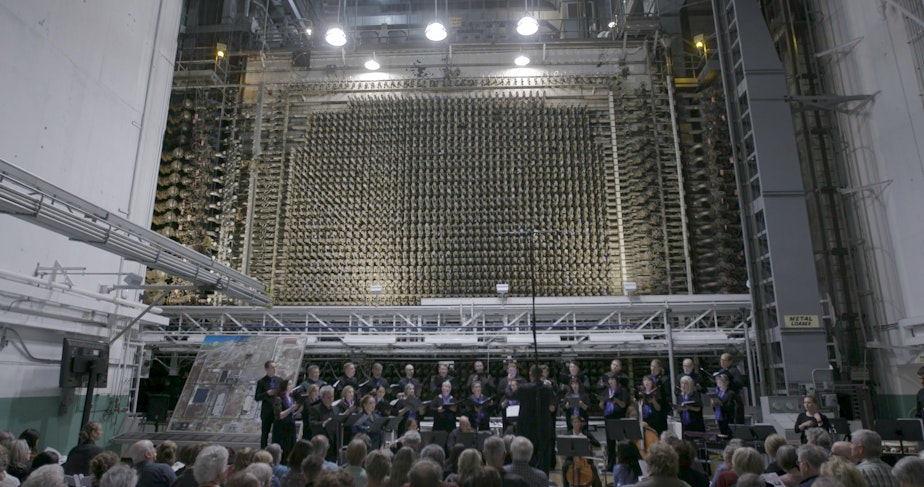'RICHLAND' shows the way history echoes through communities

Oppenheimer was a massive Hollywood hit.
For three hours, millions of people sat in dark theaters, watching the story of one man, J. Robert Oppenheimer, the physicist who led the Manhattan Project and who is considered the “father of the atomic bomb."
But life is often much more complicated when you zoom out a little bit, and so is the story of the atom bomb.
The plutonium used in both the Trinity Test of the first nuclear bomb and Fat Man, which was dropped on Nagasaki, came from the Hanford Site near Richland, Washington.
It's a city built by the government to support the enrichment of plutonium for the second largest nuclear arsenal in the world, that of the United States. The town is bisected by roads like Nuclear Lane and Mercury Drive. Businesses have names like Atomic Bowl.
Some Friday nights, you can watch the Richland High School football team. Their mascot is the bombers and their logo is a mushroom cloud erupting out of the letter “R.”
In the documentary, "RICHLAND," director Irene Lusztig looks at how the legacy of the atomic age ricochets through generations and across communities, touching on identity, patriotism, and the many stories people hold about a single place.
Lusztig came to Richland in 2015 for a day while working on a previous film. There, she met Trisha Pritikin, a downwinder activist. Pritikin gave Lusztig a tour of the town.
"Even in one day, all of the kind of nuclear culture is extremely visible in the community," Lusztig said. "And I think I'm someone who thinks a lot about history and different ways that we grapple with histories that are complicated or unresolved."
Lusztig wanted to create a listening space for the many ways people hold their own history with place. She filmed the movie over four years, speaking with children of people who worked at the site, teachers at Richland High School, archeologists, the Japanese granddaughter of an atomic bomb survivor, and Indigenous people with deep histories and connections to the land .
"It wasn't trying to judge people, but to really make a pretty complicated listening space that could hold a lot of different perspectives," she said.
Listen to Soundside’s full conversation with Irene Lusztig by clicking the play icon at the top of this story.
RICHLAND will play at SIFF DocFest on Wednesday October 11, 2023 at the SIFF Uptown.



